#screenplays
Text
Movie Scripts
Alien Script – First draft by Dan O’Bannon.
Alien Script – Third draft by Walter Hill and David Giler.
Alien Script – Final draft, June 1978.
Alien Script – Revised final draft by Walter Hill and David Giler, notations by Terry Rawlings, dated June 1978.
Alien Script – Revised final draft, October 4th 1978.
Alien 2 Treatment – Aliens treatment by David Giler, Walter Hill & James Cameron, dated September 21st 1983.
Aliens Script – First draft by James Cameron, dated February 26th 1985.
Aliens Script – Another “first draft” by James Cameron, dated May 28th 1985.
Aliens Script – Final draft, dated September 23rd 1985.
Alien 3 Script – Draft by William Gibson, first draft, 1987.
Alien 3 Script – Second draft by William Gibson, January 1988.
Alien 3 Script – Draft by Eric Red, dated February 7th 1989.
Alien 3 Script – Draft by David Twohy (October 1989)
Alien 3 Script – Draft by John Fasano, dated March 29th 1990.
Alien 3 Script – Draft by Walter Hill & David Giler, dated October 10 1990.
Alien 3 Script – Draft by Walter Hill & David Giler, dated December 18th 1990.
Alien 3 Script – Draft by Rex Pickett (rewrite of Walter Hill & David Giler draft December 18th 1990), dated January 5th 1991.
Alien 3 Script – Draft by Walter Hill & David Giler, dated January 11th 1991.
Alien Resurrection Script – First draft, dated 14th September 1995.
Alien Resurrection Script – Second draft, dated July 22nd 1996.
Alien Resurrection Script – Unknown draft.
Alien Resurrection Storyboard Script – French text, dated October 7th 1996.
Alien: Engineers Script – Pre-Prometheus script (possibly the 4th draft or a revision of it) written by Jon Spaihts.
Alien 01: Genesis Script – Pre-Prometheus script (5th draft or a revision of it but not the final) written by Jon Spaihts. Dated 9th July 2010.
Prometheus Script – Final draft by Damon Lindelof
Paradise (Prologue) Script – Opening scenes of an early Alien: Covenant draft by John Logan. This would eventually form the basis for The Crossing viral. Dated August 6, 2015.
Paradise Lost Script – Early Alien: Covenant draft by John Logan. Dated August 19, 2015.
Alien: Covenant Script – Early draft by John Logan. Dated November 20, 2015.
#alien day#alien series#screenplays#alien#aliens#alien 3#alien resurrection#prometheus#alien covenant#avpgalaxy is a treasure of a site#userbrittany#yeah yeah i'm late i know
34 notes
·
View notes
Text
The novel ones are all real situations in my novels by the way, the screenwriting one are complied from friends and my own experiences.
Funnily enough, I actually prefer writing screenplays because of the limits. My novels are fantastical magical other worlds with dragons and sorcerers, but my screenplays are mostly realist family comedy-dramas.
(Except the Baby’s First Steampunk Horror and The Mystery Series Set in an Asylum For Were-People, but they’re exceptions)
2K notes
·
View notes
Text
TOP 10 PLAY/MUSICAL CROSSOVERS ON FANFICTION.NET BASED ON NUMBER OF FANFICTION (2009-2022)
To make this bar chart race, all series titles in the Plays Crossovers Section on November 29 (or the closest date to it) of every year were copy-pasted from Wayback Machine to Google Sheets, rearranged according to number of fanworks, and then inputted to Flourish to turn into a bar chart race.
In March 27 2009, FFN launched support for crossover fanfiction. Before this date, authors either posted their crossovers in just one category and noted that it was a crossover in its summary, or posted them in one of the generic crossover categories in the Misc. section (such as X-overs, or Cartoons X-overs). There wasn’t a filter to screen all crossovers of specific fandoms back then.
Originally, the fanfiction list was sorted alphabetically, but was changed to number of fics at around early 2013.
Interestingly enough, the crossover sections don’t seem to be suffering from a total fanfiction discrepancy, unlike the sections for non-crossover fanfiction.
Please refer to this post for more fanfiction bar chart races.
Thanks for understanding and hopefully I didn’t mess up anywhere! 🙏
#fanfiction.net#ffn#fandom history#wicked#Les Miserables#screenplays#hamilton#william shakespeare#rent#dr horrible's sing along blog#cats#sweeney todd#Phantom of the Opera#newsies#love never dies#little shop of horrors#next to normal#spring awakening#avenue q
261 notes
·
View notes
Text
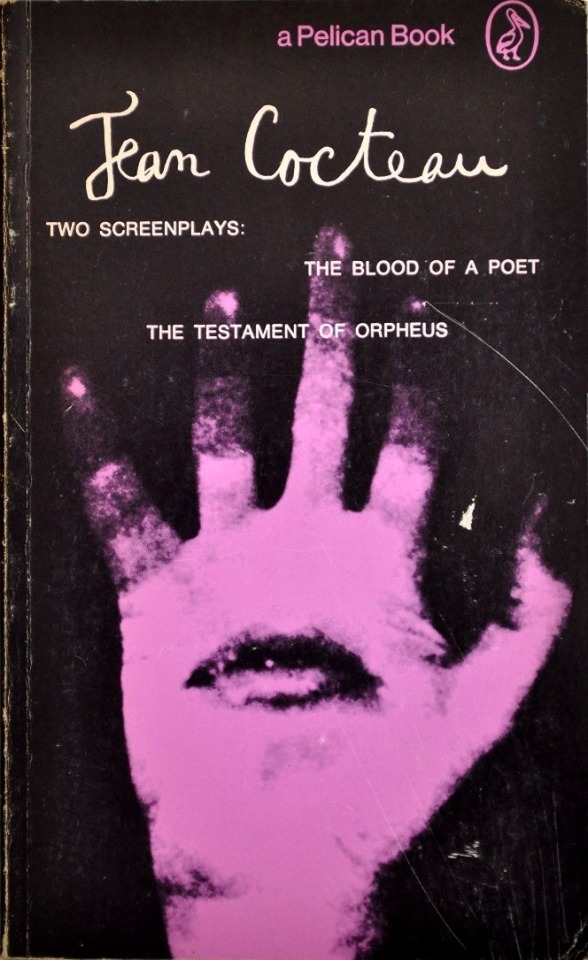
Jean Cocteau - Two Screenplays - Pelican - 1969 (cover design by George Klauber)
#witches#screenplayers#occult#vintage#two screenplays#screenplays#the blood of a poet#the testament of orpheus#pelican books#jean cocteau#1969#george klauber
36 notes
·
View notes
Text
i was recently looking for available screenplays of tudor period dramas and came across then got this one of elizabeth (1998), thought i’d share some pages i scanned along!


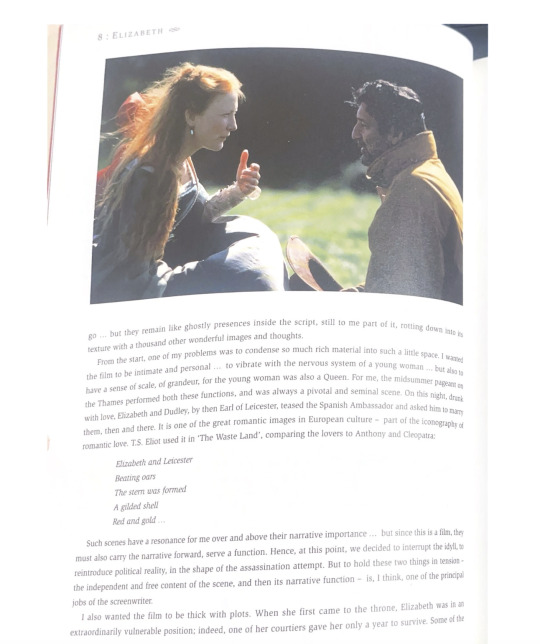
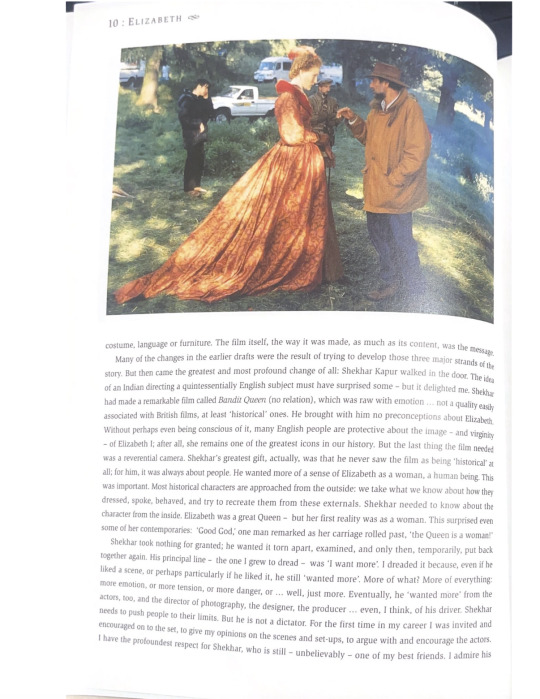
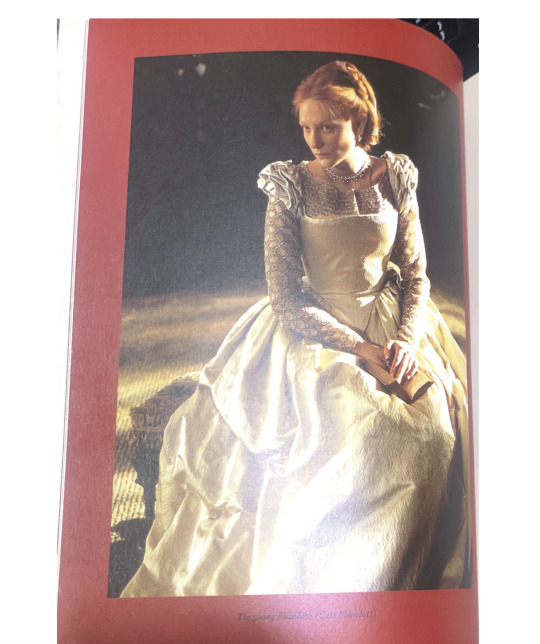
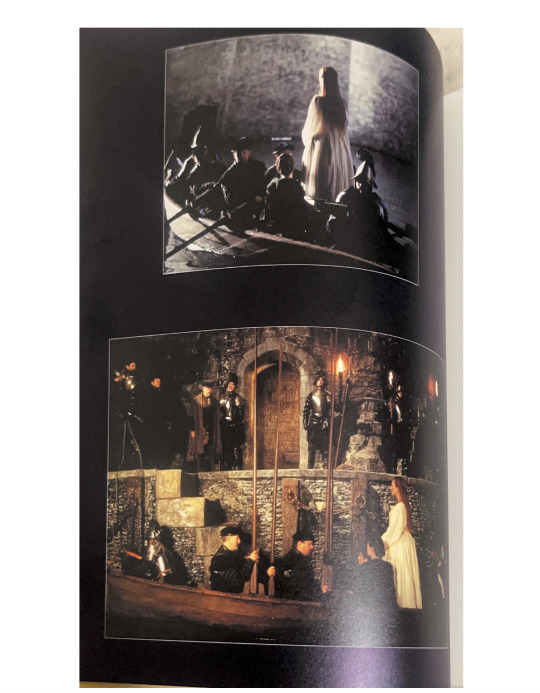
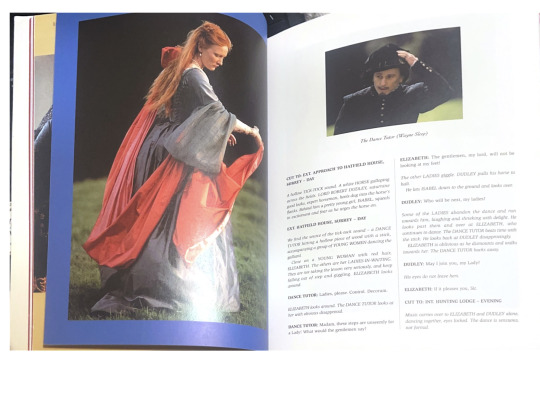
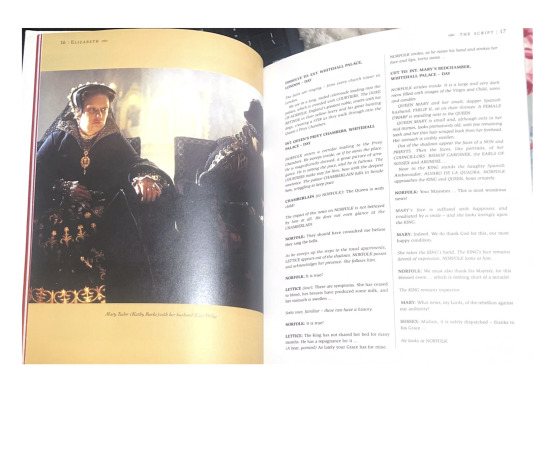
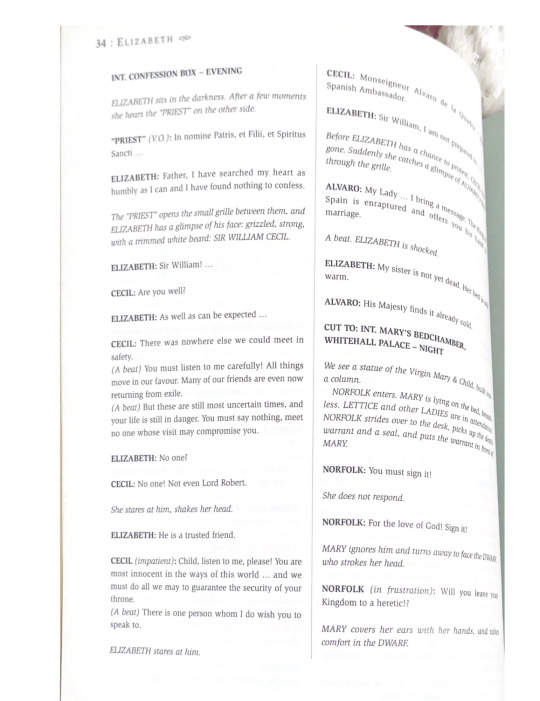



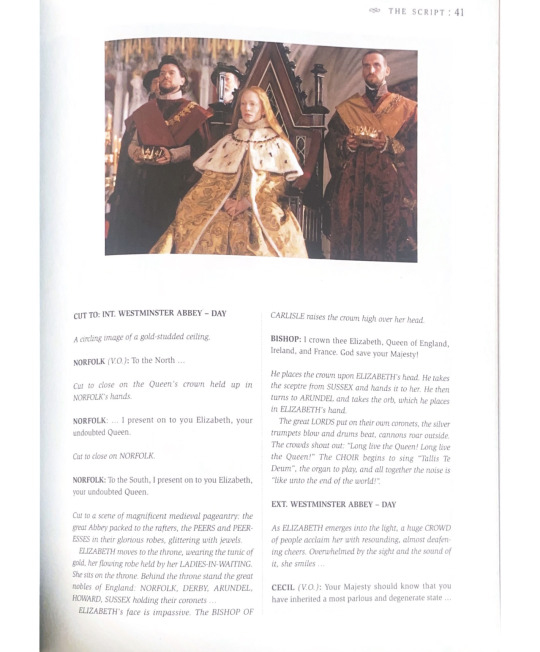
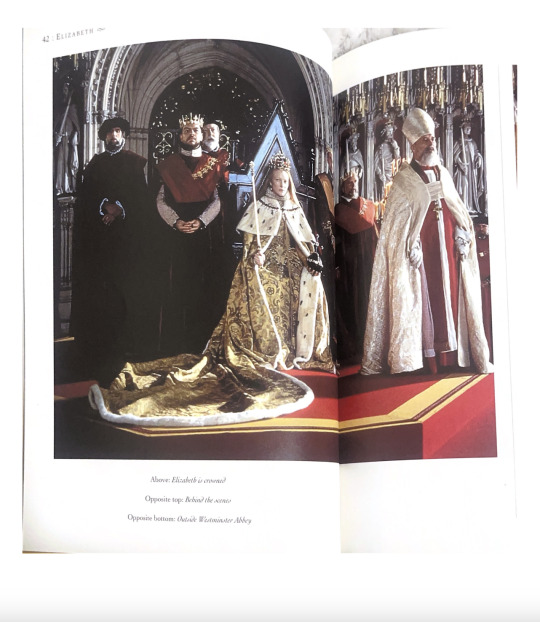
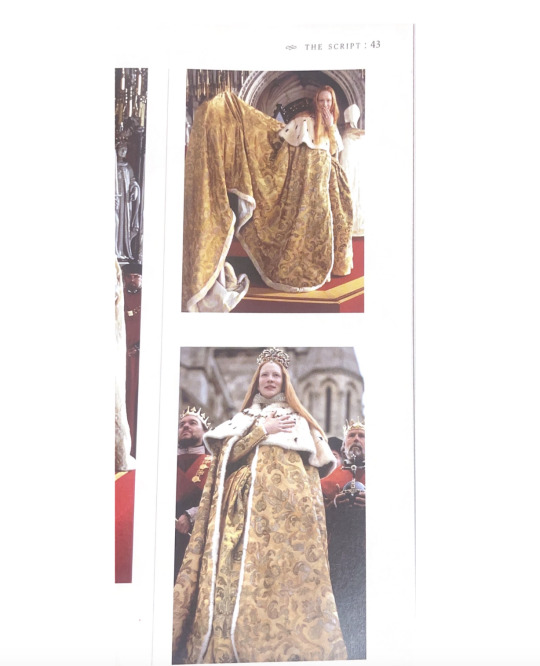
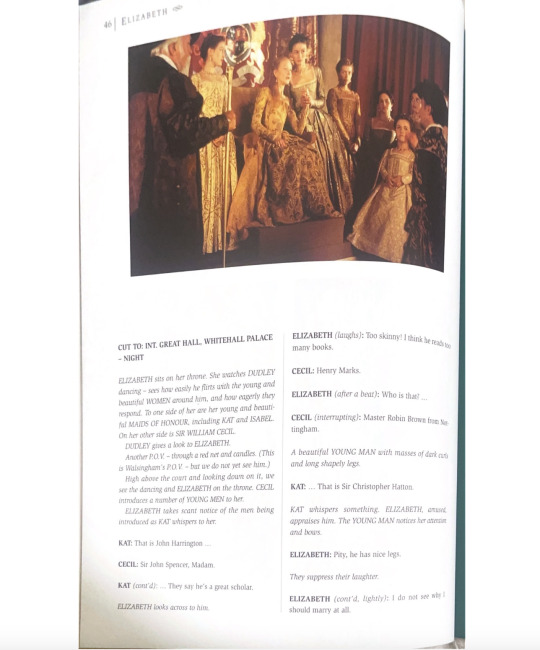

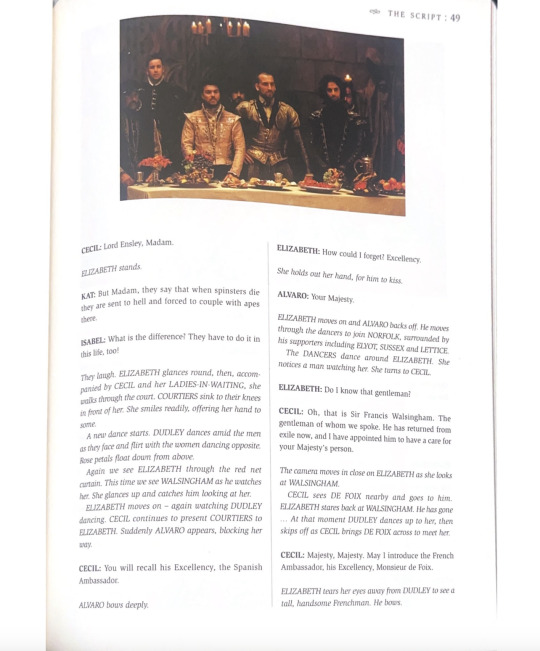
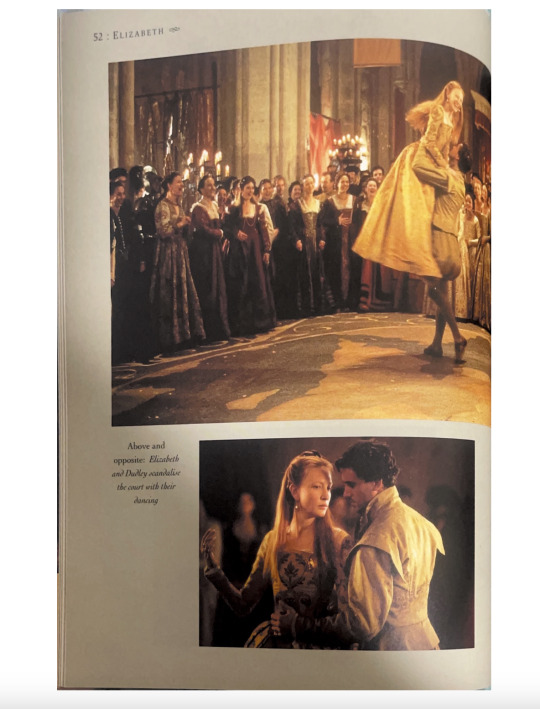
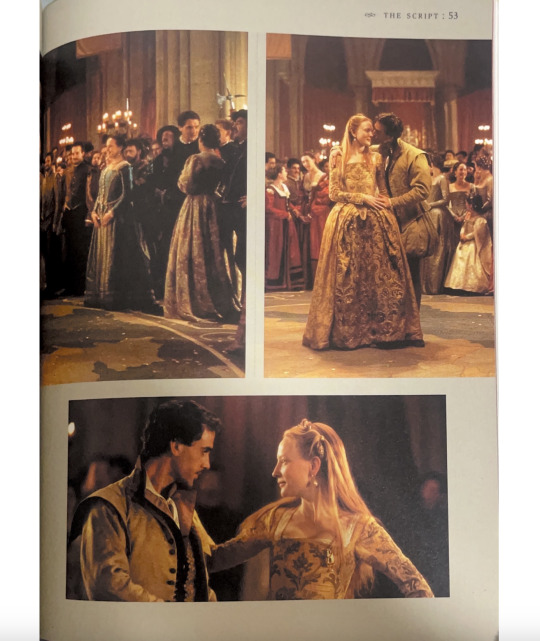

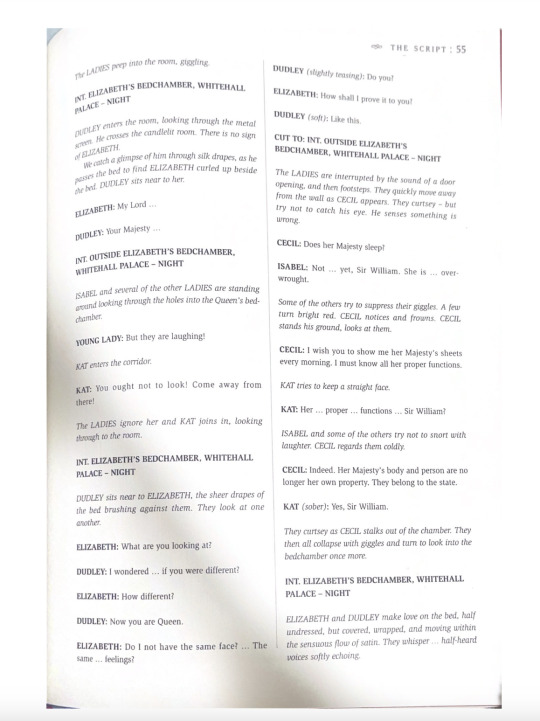
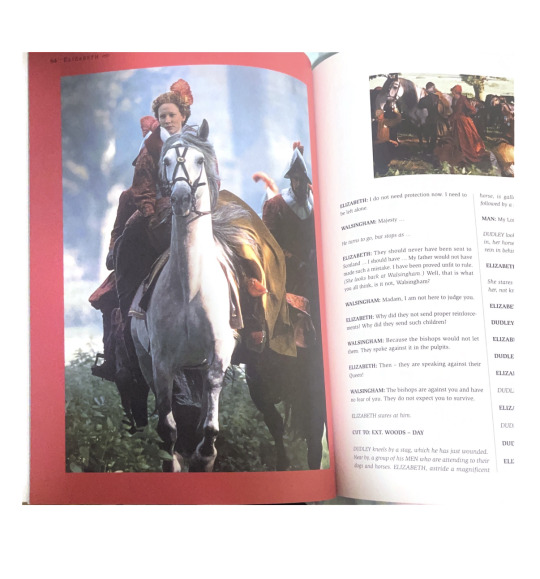
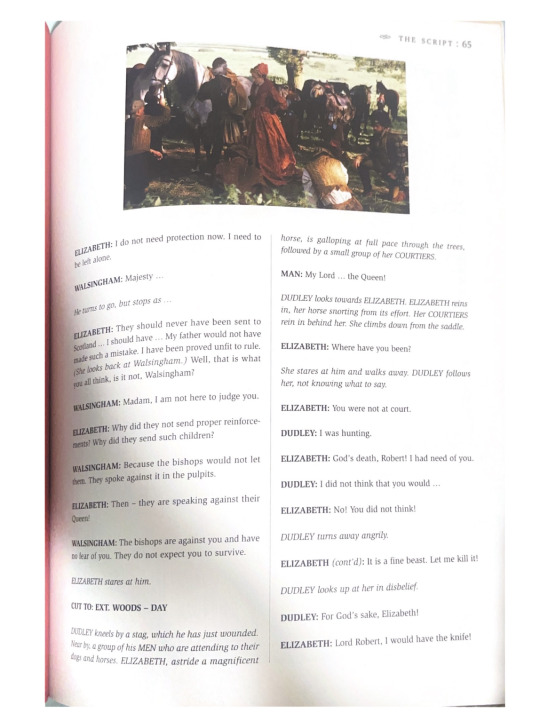
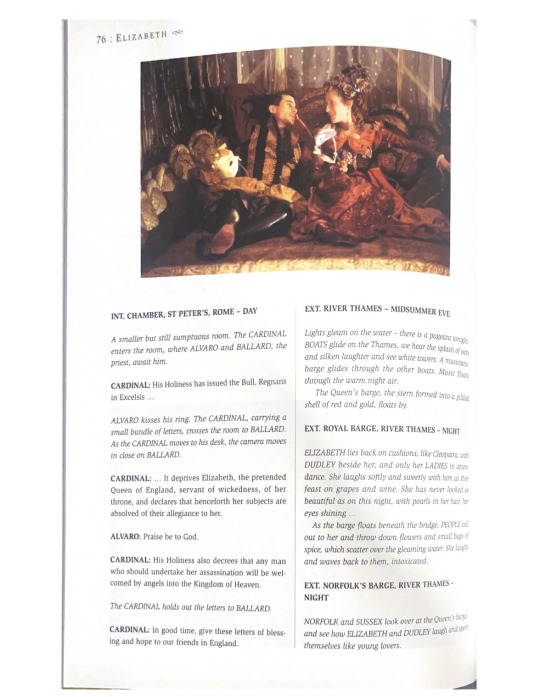
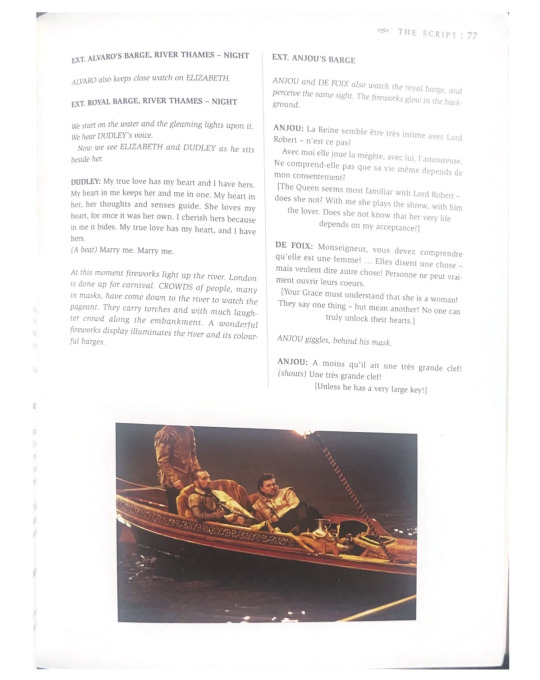



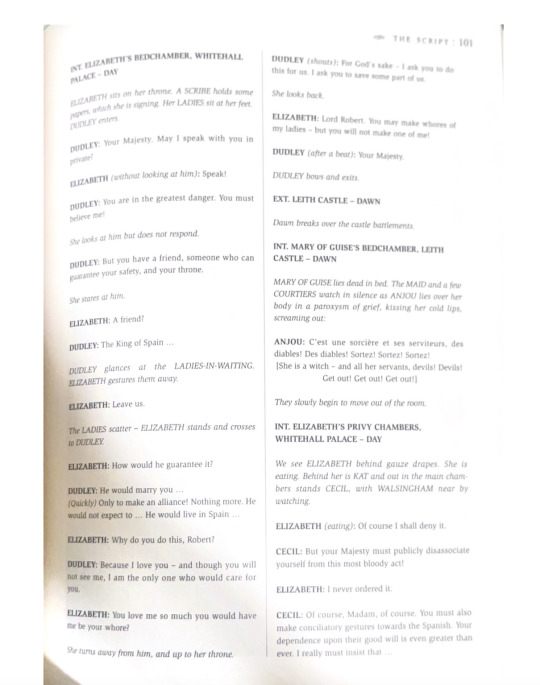
#long post#if there's a certain scene you want me to find just let me know and i'll send it lol#i have a LOT of feelings about this film....and they are rather mixed#because 1.) micheal hirst is paying for certain crimes iykyk 2.) i absolutely adore the casting and the acting#elizabeth 1998#tudor period dramas#historical dramas#films#screenplays#historical drama#period drama#cate blanchett#joseph fiennes#christopher eccleston#90s films#my stuff#movies
32 notes
·
View notes
Text
Free Film & TV Scripts
Decided to make a new one of these for the new year. As always, these are free pdfs. I’ll update this post with more as I come across them. If you’ve ever wanted to read a screenplay or have been looking for these screenplays below, enjoy.
TV
From Scratch (S1: E1)
Godfather of Harlem (S1: E1, S2: E6)
The Last Days of Ptolemy Grey (S1: E1)
Stranger Things (S1: E1 / S2: E9 / S4: E7)
Wednesday (S1: E1)
The White Lotus (S1: E1)
MOVIES
All Quiet on the Western Front — Netflix
Barbarian — HBO Max
Bullet Train — Netflix
Candyman (2021)
Everything Everywhere All At Once (Michelle Yeah shooting draft, 2002)
Everything Everywhere All At Once (Jackie Chan draft, 2017)
The Fabelmans
Glass Onion: A Knives Out Mystery — Netflix
Guillermo del Toro's Pinocchio — Netflix
Marcel the Shell With Shoes On
The Menu — HBO Max
Nine Days
Nope
Passing — Netflix
Sound of Metal
Tenet
TÁR
#screenplays#film scripts#free screenplays#free scripts#godfather of harlem#wednesday netflix#glass onion: a knives out mystery#stranger things#bullet train#everything everywhere all at once#guillermo del toro's pinocchio
140 notes
·
View notes
Text
Could I write a screenplay in 13 days?
Context: I signed up for a site to watch a few screenwriting webinars, and they have a screenwriting competition for 'Grown up movies'.
Now, I have an idea that has been nagging me that I've been plotting using to help me fall asleep that would fit this category but I haven't written an outline, really done any character digging, nothing.
...But. Maybe....
Maybe I could scrounge together the roughest of rough drafts in the next almost two weeks? Even if I don't submit it, this could be an interesting exercise—see how much I can get done between now and then, and how I feel about it and my process.

19 notes
·
View notes
Text
Screenplay Masterpost
POTC trilogy screenplays:
The Curse of the Black Pearl (first draft) (alternate link) (alt.) [* + **]
Dead Man's Chest (revision) (alternate link) (alt.) [* + **]
At World's End (green revision) (alt.) [* + **]
Marvel (MCU+others) screenplays:
Thor [2011] (undated draft) (alternate link)
The Avengers [2012] (undated draft) (alternate link)
Guardians of the Galaxy vol.2 (undated draft) (alt.)
Black Panther (undated adapted screenplay) (alt.)
Black Panther: Wakanda Forever (may 8th 2021)
Captain America: The First Avenger (first shooting draft - incomplete)
Iron Man 1 (undated script_salmon_2)
Spider-Man: No Way Home (undated script)
Spider-Man: Into the Spiderverse (dec 3rd 2018)
Spider-Man: Across the Spiderverse (undated script)
Spider-Man [2002] (april 18 2001)
Spider-Man 2 [2004] (undated script)
Avengers: Endgame (adapted screenplay for oscars)
Misc. screenplays:
Addams Family Values (shooting script)
The Hunger Games (undated script)
The Hunger Games: Catching Fire (green revised)
A Quiet Place (undated script)
Sources (x) (x) (x) (x)
* The wordplay.com links download with a watermark, however the script is entirely readable.
** thescriptlab.com requires signing in to get access to the screenplays
#potc#pirates of the caribbean#screenplays#screenplay#the curse of the black pearl#dead man's chest#at world's end#marvel#thor 2011#the avengers 2012#guardians of the galaxy vol.2#spider-man#no way home#across the spiderverse#into the spiderverse#iron man#addams family values#the hunger games#a quiet place#black panther#wakanda forever#endgame#captain america#the first avenger#masterpost#archival purposes
4 notes
·
View notes
Text
btw movie enjoyers: since it's awards season, you can read & download a lot of the 2023 award-nominated film screenplays for free. have fun
#genuinely i think this was a really great year for movies. even the ones i thought were mid weren't THAT awful#screenplays#2023 movies
5 notes
·
View notes
Text
Main Characters

ANGEL ESTRELLA: Angel is the first main character. He is a 15-year-old anxious trans boy who gets bullied a lot. He and his younger sister Maite often stay at their grandma's apartment because of their absent parents. Angel takes on most of the responsibility of taking care of his sister, as his grandma is very old. Because of this he is generally very overwhelmed. With his careful demeanor he makes sure his energetic and adventurous sister doesn’t get herself into too much trouble.
MAITE ESTRELLA: Maite is the second main character. She is an energetic 8-year-old girl who is constantly looking for new adventures. She loves the stories her grandma tells her and her brother Angel when they stay over at her apartment. She has an infinitely large imagination and is very open-minded. She loves spending time with her brother and includes him in her impulsive adventures.
<><><><><><><><><><><><><><><><><><><><><><><><><><><><>
The Abethys Adventure is an animated movie written by two students. Follow us to learn more about the story, worlds and characters!
#storytelling#film#movies#fantasy movies#screenplays#screenwriting#original stories#the abethys adventure#my characters#character art#character design#original character#own character#character illustration#filmmaking#moviemaking#story writing#indie author#original art#oc art#original writing#original story#original characters#characters of color#creator of color#lgbt characters#lgbtq creators#lgbtq characters#trans character
41 notes
·
View notes
Text
Deadline’s Read the Screenplay series spotlighting the year’s most talked-about scripts continues with Nimona, Netflix‘s animated feature based on ND Stevenson’s 2015 National Book Award-nominated graphic novel about finding friendship in the most surprising situations and accepting yourself and others for who they are.
Nick Bruno and Troy Quane (co-directors of Spies In Disguise) directed the film, which was adapted by Big Hero 6 scribe Robert L. Baird and Spies co-writer Lloyd Taylor and features the voices of Riz Ahmed and Chloë Grace Moretz in the lead roles. Frances Conroy, Lorraine Toussaint, RuPaul Charles, Eugene Lee Yang, Indya Moore, Sarah Sherman and Beck Bennett also have voice roles.
A family-focused film with authentic queer themes set in a vibrant techno-medieval world (credit to teams at Blue Sky Studios and DNEG Animation), the plot centers on Ballister Boldheart (Ahmed), a knight in a futuristic medieval world, who is framed for a crime he didn’t commit. The only one who can help him prove his innocence is Nimona (Moretz), a mischievous teen with a taste for mayhem — who also happens to be a shapeshifting creature Ballister has been trained to destroy.
Baird and Taylor said their main challenge in the adaptation was to stay true to Stevenson’s story while morphing it from the episodic form of the novel to a feature-length narrative – in itself a process of shapeshifting that mirrors one of the novel’s core themes.
Nimona, which was just nominated for Best Animated Film at the Critics Choice Awards, had a long path to travel to get to its world premiere at the Annecy Animation Festival in June, followed by a theatrical run ahead of its release on Netflix on June 30.
Then-20th Century Fox’s Blue Sky originally optioned Stevenson’s novel the year it was published, and the project moved forward despite the Disney-Fox merger and then the pandemic. But it almost didn’t survive a third blow: Disney shuttered Blue Sky in April 2021, halting Nimona mid-production.
Blue Sky principals Baird and Andrew Millstein kept pushing on the the project however and eventually found a partner in Annapurna’s Megan Ellison, who sparked to its themes. Baird and Millstein became EPs and created Shapeshifter Films to complete the movie, which then landed at Netflix. The pair have since joined Ellison at her company, forming Annapurna Animation.
Click here to read the script.
219 notes
·
View notes
Text
Writer Beware: How a Book Really Becomes a Movie.
Writer Beware is an excellent site of information for those who are or want to become traditionally published. The official blog of Writer Beware® shines a bright light into the dark corners of the shadow-world of literary scams, schemes, and pitfalls. Also providing advice for writers, industry news, and commentary. Writer Beware® is sponsored by the Science Fiction and Fantasy Writers Association.
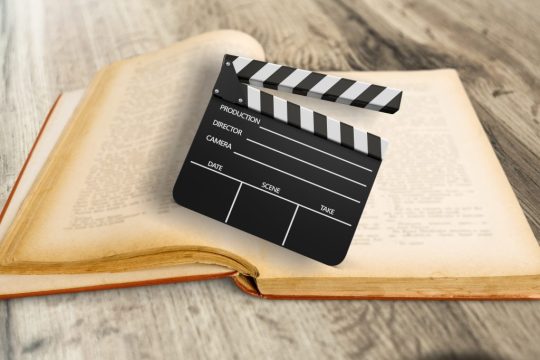
by Victoria Strauss, April 12
Book-to-film scams are extremely common these days. If the publishing industry is opaque and secretive, the movie biz is even more so, and scammers take full advantage.
From disreputable marketers claiming to take your book to pitch events, to fake agents offering to represent you to major production companies, to scammers impersonating those production companies themselves, hordes of fraudsters are soliciting writers by phone and email with tempting-sounding "offers" and "opportunities" that they promise will route your book directly to the silver screen.
In reality, of course, the fraudsters have no Hollywood connections. The sole aim of these solicitations is to trick you into paying large amounts of money for products or services--screenplays, pitch decks, "cinematic trailers", and more--that you don't need and that may not even be delivered.
How to defend yourself? As noted by Jeanne Veillette Bowerman, today's guest post author, the best way to avoid being scammed is to understand the process. The more you know about how things should work, the easier it will be to recognize questionable or dishonest practices when you encounter them.
In the article below, Jeanne offers a comprehensive overview, unpacking the multiple and often complicated paths by which a book really finds its way to the screen...which, as you'll see, bear no resemblance to the shortcuts and guarantees claimed by fraudsters.
*~*~*~*~*
How a Book Really Becomes a Movie
by
Jeanne Veillette Bowerman
Anyone passionate about their work, desperate to get published or have their book adapted to film, is a perfect target for a scam. Like this one.
First, if you’ve fallen for one of these too-good-to-be true solicitations, don’t beat yourself up. It’s easy to do. Writers tend to be solitary creatures, many without a support system. That's what makes us vulnerable to exploitation. But the best way to protect ourselves is to understand how the book-to-film process works.
Get comfortable. There’s nothing simple about Hollywood.
The filmmaking industry baffles many—even those working in it. The reality is, there is no single way to get a film made. There are quite literally as many ways to break in as there are writers who’ve successfully done so, making scams harder to identify.
Sadly, when someone proactively reaches out to you, you have to assume it’s fake until you can prove otherwise. With scams abounding, the burden of proof has shifted. Due diligence has never been more important.
You do NOT need a screenplay to sell your book-to-film rights.
You do NOT need a sizzle reel or "cinematic trailer".
You do NOT need storyboards.
You do NOT need mood boards.
You should NOT have to pay any upfront fees.
You should NOT be required to buy anything.
Let’s go through the traditional paths first, then I’ll share an unusual story to demonstrate how varied this process can be.
Most common paths for book to film
What you need is a great story with cinematic elements that would attract a large audience. If it’s for TV, it should have compelling characters and a broader world that could translate to multiple episodes.
Your agent strives for one of three opportunities:
Sell the book-to-film rights directly to a studio or producer,
Option the book for a set dollar amount for a specific period of time, or
Sign a shopping agreement for a shorter period of time with no money being paid to the author.
1. Selling the Book
When you sell your book outright, that’s it. You’re done. You no longer have any claim to said material, nor the right to participate in the adaptation. You probably won’t be able to write a future sequel if the studio owns your intellectual property … which means they own your characters. There are exceptions though, depending on how the contract was negotiated. You definitely need a talented agent or attorney to assist … not a pitching or consulting “service” that solicits you via email.
The sale price typically will be 2-3% of the film's budget (that's money paid to you, not the other way around), but it depends. It always depends. Your agent should at least try to get you Executive Producer credit, or a consulting gig. But many producers want the author far, far away from the project. Your book is merely a blueprint for the film. A lot will change—subplots and characters will disappear—which can be difficult for the author to accept.
If you’re lucky, and have the proper experience and background, they’ll give you first crack at writing the script. But don’t expect it. Your payday is the sales of the rights plus more copies of your book being sold.
But … here’s the hard part … even if you sell your book, the movie may never get made. Yes, you read that correctly. It takes millions of dollars and hundreds of people to align to make a film. People often say it’s a miracle any film gets made. They’re right.
2. Option Agreement
An option by a showrunner or producer usually runs $1,000 to $30,000 for a set period of time (again, that's money paid to you), the standard being 12 to 18 months. This gives them time to “package” the project by attaching a director, actors, etc. and (hopefully) sell it. Note: It is illegal to not pay a writer for an option, hence why you’ll sometimes see an option happen for a penny or a single dollar—which is more common when optioning a screenplay, as opposed to a book.
The vast majority of options expire long before any movie deal can be struck, but they may be renewed for an additional fee. With each renewal, your agent will likely either ask for more money or less of a time commitment. I do know authors who have optioned the same novel multiple times—not a bad payday. But still, no film and no purchase of book-to-film rights ever happened in those cases. An option doesn’t guarantee you a sale.
3. Shopping Agreement
A shopping agreement is similar to an option, only the producer tries to shop it around town without paying the option fee. Since the author receives no money, the shopping agreement typically lasts only six to nine months. Renewable, just like options.
These are more common than traditional options because the producer gets exclusivity, albeit for a shorter period of time, without coughing up money. Authors might agree to this strategy simply because there’s some sense of hope that a deal will be made.
So, how do your book-to-film rights get sold?
Just like everything else in the industry, you need relationships with the right people. Agencies spend years fostering those relationships with production companies and will go directly to them to pitch the book, sometimes in person, sometimes with a phone call. They’ll set up meetings with producers, not junior execs. Junior execs are the ones who go to pitching events, not decisionmakers.
Usually, an agent only needs a logline or a one-sheet. A logline is a one- to two-sentence elevator pitch. A one-sheet is exactly what it sounds like—a single page that summarizes the book and gives details about the author. That’s it. What your agent will not do is spend money to hire a screenwriter or hire someone to create a sizzle reel, trailer, or story boards.
If a potential sale is on the table, your agent should negotiate development fees, as Hollywood famously tries to get writers to do development work for free. Get your agent to negotiate compensation for that. An agent might also ask for the title card on the film not to be buried and to also be able to use key art of the movie poster for the book cover.
Before any significant negotiations happen, they’ll want to know there is a clear chain of title, meaning must prove you own 100% of the property. This is where having a screenwriter adapt your book in advance muddies the waters. If you didn’t pay them to adapt it, and have it in writing that you own the script, you’ve now entered into a trickier situation where the producer might have to pay both you and the screenwriter.
Moviemaking is a business. As in any business, people want things clean and simple. So, say you fall for one of those scams where you split the cost of hiring a screenwriter, making a sizzle reel, and creating story boards. That scammer could potentially now own half of your work. No exec is going to touch that with a 10,000-foot pole.
The most popular word in Hollywood is “no.” Don’t make it easy for them to say it.
The author may, however, take a stab at writing the script themselves. I’ve had top producers at the New York Rights Fair tell me they actually prefer having an author’s rough draft for several reasons—it saves them development money, and they appreciate having the author slashing the story down themselves. Less room for arguments later.
Author Lee Matthew Goldberg has both adapted his own book as well as optioned another. “I've been told, with my Runaway Train project, with the actress attached, that my script is what gets the project in the door. And then ultimately, it's most likely not going to be my script [that gets produced] when it actually sells. But had I not had a script, and it just was the book, it might have been harder to sell … Hollywood doesn't like to read. It's easier for them to read a script than a book. So, I think it's in the best interest for an author to write the screenplay. Be open to the fact that their screenplay might just be the thing that gets them over the first hump.”
But brace yourself. Hollywood isn’t going to wrap their arms around you, as the screenwriter. You will get fired, and they will bring in a pro screenwriter. However, per WGA rules, if you’ve written that original draft, you’ll get a shot at the first rewrite … before they finally fire you. But you will be fired. Don’t be offended though. Every great A-list screenwriter has been fired. It’s how the business works.
What if you’re self-published and/or don’t have an agent?
Let’s say you’re self-publishing and query producers yourself, and they bite. That producer is not going to take your book to a pitching event (a common scammer claim). They have direct contacts with people in the industry and will set up a meeting.
Again, you could take a stab at writing the screenplay, enter it into contests (see below), pitch to actors' production companies, or query screenwriting managers.
If the script gets sold, they’ll still fire you. See above.
The case study: The Reincarnationist Papers
Buckle up … this is but one example of how long it takes to go from book to film … and how totally unpredictable the process can be.
In 2009, Eric Maikranz wrote and self-published The Reincarnationist Papers. On the first page of the book, he put a “bounty” on it, stating that whomever finds this book and can help get it sold to a major publisher or movie studio will get 10% of his take. Great marketing!
Years later, while on vacation in Katmandu, a producer, Rafi Crohn, finds the book on a shelf of a bathroom in a tea house—no idea how it made it all the way to Katmandu—reads the “bounty,” and that alone intrigues him enough to dive into the book. Loving it, he tracks down Eric and secures an option.
It’s now 2012. Rafi contacts Ian Shorr, a professional screenwriter who feels, “There’s something magical there … an element of Willy Wonka.” Ian then pitches his take on how to adapt the book to Imagine, Ron Howard’s production company. (Note: This is how open writing assignments work. Before paying a screenwriter, execs ask them to read the book and pitch their take.) In this case, they don't go for Ian’s vision. He pitched a Matrix version; they want a Harry Potter version. Imagine never finds a writer’s idea they can align with.
Movie is dead.
Almost two years later, the rights are about to lapse again, so Rafi, who liked Ian’s take, approaches him to see if he’d be game to write the script on spec (which means without pay).
Why would a pro screenwriter write for no money? Ian explains, “For me, it was like the one that got away came back … I was still thinking about that book.”
Ian’s manager re-ups the rights.
Since Ian is writing this on spec, obviously, he is concurrently working on projects that actually pay him. Go figure. And The Reincarnationist Papers is a complicated one to adapt, taking Ian about three years to finalize the script.
The script and the rights to Eric’s book finally get purchased by Paramount.
Time to celebrate, right? Nope.
Immediately after the script gets sold, the president of Paramount leaves, and the new head sees the $200-million price tag and crosses it off their slate. The book was not a best seller, and the risk is too high.
As Ian puts it, “This movie died a million times before it lived.”
What brings it back to life: the director Antoine Fuqua, about to do a film for Paramount, is craving to do a Matrix-type project, but was brought on to direct something else. A producer slips Antoine the script Ian wrote, now called Infinite. Antoine loves it, and tells the studio this is the one he wants to make. Total fluke. The right champion at the right time. Finally.
Again, relationships.
Ian writes more drafts for Antoine, they cast the movie, lose the star, get another star, shoot it in 2019, and it finally gets released in 2021. Just a short 12 years from book to film.
Ian sums it up, “I think a lot of writers don't understand that their work is going to change. They all want the adaptation for all those other reasons that Eric enjoyed—like book sales, publishing deals, sequels. But some writers definitely do struggle with the fact that there are changes. The second you get into bed with Hollywood, that's the first thing you have to be prepared for. Because the spec that I wrote was very different from the book that he wrote. And then my spec got rewritten by other writers, who changed what I wrote.”
There are thousands of stories similar to this … and also very different.
You can watch Ian discuss the adaptation process on Pipeline Artists here.
Oh, there are still more out-of-the-box options …
Have you heard of “The Book Whisperer”? Meet Lane Shefter Bishop. (You can find an in-depth one-on-one conversation I had with her on Pipeline Artists’ Symposium here.)
In short, Lane has relationships (there’s that word again) with literary agents and will often get a shopping agreement on the book prior to it ever being published. Her goal is to be able to mold the story, pre-publication, to help create a more cinematic experience, structured like a movie.
Frankly, it’s genius. Give the conversation a listen.
Pay-to-play versus true champions
Let’s go back to “What do I do if I don’t have an agent?”
There are more and more writing contests popping up that won’t lead you anywhere except a few dollars less in your pocket, but reputable ones absolutely exist. Full disclosure, I’m a Senior Executive at Pipeline Media Group, a company that discovers novelists, screenwriters, and filmmakers via contests. Trust me when I say I’ve heard all the arguments about contests being pay-to-play scams, but it’s not the case for most, so do your research on the top platforms.
I’m also a writer, and I’ve entered plenty of contests in my day. Some have propelled my career, others, despite being a finalist, did absolutely nothing for me. They didn’t even email me to inform me of my selection!
Just like with any opportunity that feels too good to be true, as mentioned, do your research.
Beyond reading a contests’ success stories, I always recommend doing a search for a contest’s past finalists. Follow them on social media and message them, asking what that contest actually did for them. Getting previous finalists’ feedback on their take will tell you everything you need to know.
Get more than one perspective though. Get as many as you can! Strike the most positive, and strike the most negative. Take the average, and you can be confident in the results. Writers will be honest with each other. And if they got screwed over, they’ll be more than happy to tell you!
Bottom line
Scams are everywhere. The best way to identify them is to know how the process actually works.
Hollywood loves adaptations for many reasons, but mostly because the bulk of the story development work is already done, and a dedicated fan base exists. So, cast out as many nets as possible, even if it means writing the script yourself.
Why not? No one knows your story as well as you do.
If you want outside help, please do your research. Check multiple references, not just one. The Golden Ticket isn’t going to drop in your inbox. If it sounds too good to be true, it’s a scam.
Above all, trust your spidey senses.
I’ll leave you with Ian Shorr’s final advice: “Because writers are so passionate, and because we're so willing to work for free, and because it's such an aspirational, dream-based industry, it makes us a really easy target for scammers. Plus, the way that Hollywood operates is so opaque to people who don't work there. It's easy for someone to come along and say, oh, yeah, this is how you play the game. The reality is, if you write something that people love, they will come to you. And they will put their energy into it. Just remember, anybody who’s looking for you to pay them is a red flag."

Jeanne Veillette Bowerman is a Senior Executive at Pipeline Media Group and Book Pipeline, Editor-in-Chief of Pipeline Artists, co-host of the Pipeline Artists original podcast, "Reckless Creatives," former Editor-in-Chief of Script magazine and a former Senior Editor at Writer's Digest. Her Script column "Balls of Steel" was selected as recommended reading by Universal Writers Program. A compilation of her articles is now available—Balls of Steel: The Screenwriter's Mindset. She is also a partner at Fringe Press and Co-Founder and moderator of the weekly Twitter screenwriters’ chat, #Scriptchat. She wrote the narrative adaptation of the Pulitzer Prize-winning book, Slavery by Another Name: The Re-Enslavement of Black Americans from the Civil War to World War II, with its author, Douglas A. Blackmon, former senior national correspondent of The Wall Street Journal and has now ventured into writing historical fiction. Follow Jeanne on X: @jeannevb
#writblr#writers on tumblr#writing community#writers of tumblr#writing advice#writing tips#writer beware#screenwriting#screenplays#writing scams#publishing scams#writer#writers#writerscommunity#books to movies
3 notes
·
View notes
Video
TOP 10 PLAYS/MUSICALS ON FANFICTION.NET BASED ON NUMBER OF FANFICTION (2000-2022)
To make this bar chart race, all series titles in the Plays/Musicals Section on November 29 (or the closest date to it) of every year were copy-pasted from Wayback Machine to Google Sheets, rearranged according to number of fanworks, and then inputted to Flourish to turn into a bar chart race.
The Plays/Musicals section was created in March 5, 2009. Before this date, play/musicals were found in the Misc. section.
Up until 2005, the only entries for plays/musicals were Musicals/Plays and Screenplays.
In 1999, fanfiction weren’t divided into sections like Anime/Manga, TV, Books, etc. yet. It was just a small list of mixed fandoms. There wasn't any play/musical entry in the only archived page I have for that year.
Phantom of the Opera was removed from the Plays/Musicals section by 2011. All the fanfiction were transfered either to the Phantom of the Opera in the Book section or the Movies section. In 2015, Phantom of the Opera was added to the Plays/Musicals section again. However all but 1 fic were published in 2015 onwards.
Musicals/Plays, the catch-all category for all musicals/plays that don't have their own category, remained in the Misc. section with all the other Misc. [section] catrgories.
Originally, the fanfiction list was sorted alphabetically too, but was changed to number of fics at around early 2013.
By November 2013, FFN started abbreviating numbers above 1,000 to K, so exact numbers aren't available for series with more than 1,000 fanfiction.
This bar chart was made with the assumption that the numbers listed in the Plays/Musicals section are correct. I can't seem to get the same numbers for some of these categories when I go to the specific categories' page and toggle ratings, other filters, and language to All though... I'm not sure where the discrepancy is coming from. (And it’s not the crossover fic numbers that need to be added to serie’s total fics from what I’ve observed.)
Please refer to this post for more bar chart races.
Thanks for understanding and hopefully I didn’t mess up anywhere! 🙏
#fanfiction.net#ffn#screenplays#rent#wicked#Les Miserables#cats#hamilton#william shakespeare#newsies#starship#spring awakening#next to normal#dr horrible's sing along blog#we will rock you#Phantom of the Opera#producers#legally blonde#jesus chris superstar#musicals#i forgot to rename musicals plays to misc musicals plays but im too lazy to rerecord this video lol sorry
41 notes
·
View notes
Text
J. K. Rowling's works in chronological order.
Harry Potter and the Philosopher's Stone, 1997. (The Harry Potter Series Book 1)
Harry Potter and the Chamber of Secrets, 1998. (The Harry Potter Series Book 2)
Harry Potter and the Prisoner of Azkaban, 1999. (The Harry Potter Series Book 3)
Harry Potter and the Goblet of Fire, 2000. (The Harry Potter Series Book 4)
Fantastic Beasts and Where to Find Them, 2001. (Wizarding World Supplement)
Quidditch Through the Ages, 2001. (Wizarding World Supplement)
Harry Potter and the Order of the Phoenix, 2003. (The Harry Potter Series Book 5)
Harry Potter and the Half-Blood Prince, 2005. (The Harry Potter Series Book 6)
The first it girl: J. K. Rowling reviews Decca: the letters by Jessica Mitford, 2006. (The Daily Telegraph article)
Harry Potter and the Deathly Hallows, 2007. (The Harry Potter Series Book 7)
The fringe benefits of failure, and the importance of imagination, 2008. (Harvard Magazine article)
Harry Potter prequel, 2008. (A short story, Wizarding World Supplement)
The Tales of Beedle the Bard, 2008. (Wizarding World Supplement)
Gordon Brown - the 2009 time 100, 2009. (Time magazine article)
The single mother's manifesto, 2010. (The Times article)
The Casual Vacancy, 2012. (First non Wizarding World novel)
I feel duped and angry at David Cameron's reaction to Leveson, 2012. (The Guardian article)
The Cuckoo's Calling, 2013. (The Cormoran Strike Series Book 1)
The Silkworm, 2014. (The Cormoran Strike Series Book 2)
Isn't it time we left orphanages to fairytales? 2014. (The Guardian article)
Very Good Lives: The Fringe Benefits of Failure and Importance of Imagination, 2015. (Non-Fiction)
Career of Evil, 2015. (The Cormoran Strike Series Book 3)
Harry Potter and the Cursed Child, theatre play premiering in 2016.
Short stories from Hogwarts of Power, Politics and Pesky Poltergeists, 2016. (Wizarding World Supplement)
Short stories from Hogwarts of Heroism, Hardship and Dangerous Hobbies, 2016. (Wizarding World Supplement)
Hogwarts: An incomplete and unreliable guide, 2016. (Wizarding World Supplement)
Fantastic Beasts and Where to Find Them, 2016. (Screenplay)
Lethal White, 2018. (The Cormoran Strike Series Book 4)
Fantastic Beasts: The Crimes of Grindelwald, 2018. (Screenplay)
A love letter to Europe: an outpouring of love and sadness from our Writers, Thinkers and Artists, 2019. (Non-fiction, co-authored)
Troubled Blood, 2020. (The Cormoran Strike Series Book 5)
The Ickabog, 2020. (First non-Harry Potter children's book)
The Christmas Pig, 2021. (Second non-Harry Potter children's book)
Fantastic Beasts: The Secrets of Dumbledore, 2022. (Screenplay)
The Ink Black Heart, 2022. (The Cormoran Strike Series Book 6)
The Running Grave, 202?. (The Cormoran Strike Series Book 7).
#J. K. Rowling#Robert Galbraith#British Author#British#Author#Books#Articles#Press#Magazines#Screenplays#Theatre#Plays#British literature#literature#Harry Potter#The Wizarding World#Cormoran Strike#The Cormoran Strike Series#The Casual Vacancy#Children's books#Fantastic Beasts and Where to Find Them#Hermione Granger#Ron Weasley#Robin Ellacott#United Kingdom
30 notes
·
View notes
Text

Luke Edward Allen, one of the main characters of the book 'Puzzled', at the market in Nice, Cote D'Azure, choosing mandarines - an image created by Dalle3 based on the text of the book 'Puzzled' by Seraphima Bogomolova
#ai#generative ai#screenplays#souliris#screenplaypuzzled#seraphima bogomolova#text to image#artificial intelligence#Dalle3#characters#Luke Edward Allen#boks#book Puzzled#mandarines#Nice#Cote D'Azure
3 notes
·
View notes
Text

US movie screenplay being released to celebrate the film's 5 year anniversary.
"A masterpiece of identity horror and a dark reflection on America’s past and present, this companion paperback to the critically-acclaimed film Us features Oscar®-winning director Jordan Peele’s screenplay illustrated with over 150 stills from the motion picture; deleted scenes; an introduction by the filmmaker; and in-depth annotations."
via Monkeypaw Productions | Instagram
#us#jordan peele#us movie#monkeypaw productions#screenplays#horror movies#doppleganger#lupita nyong'o#the tethered#adelaide#red#scriptwriting
4 notes
·
View notes